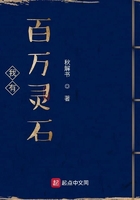"I'll come to the station," said Ann Veronica. "I may as well come up by this train.""I may have to run," said her father, with an appeal to his watch.
"I'll run, too," she volunteered.
Instead of which they walked sharply. . . .
"I say, daddy," she began, and was suddenly short of breath.
"If it's about that dance project," he said, "it's no good, Veronica. I've made up my mind.""You'll make me look a fool before all my friends.""You shouldn't have made an engagement until you'd consulted your aunt.""I thought I was old enough," she gasped, between laughter and crying.
Her father's step quickened to a trot. "I won't have you quarrelling and crying in the Avenue," he said. "Stop it! . . .
If you've got anything to say, you must say it to your aunt--""But look here, daddy!"
He flapped the Times at her with an imperious gesture.
"It's settled. You're not to go. You're NOT to go.""But it's about other things."
"I don't care. This isn't the place."
"Then may I come to the study to-night--after dinner?""I'm--BUSY!"
"It's important. If I can't talk anywhere else--I DO want an understanding."Ahead of them walked a gentleman whom it was evident they must at their present pace very speedily overtake. It was Ramage, the occupant of the big house at the end of the Avenue. He had recently made Mr. Stanley's acquaintance in the train and shown him one or two trifling civilities. He was an outside broker and the proprietor of a financial newspaper; he had come up very rapidly in the last few years, and Mr. Stanley admired and detested him in almost equal measure. It was intolerable to think that he might overhear words and phrases. Mr. Stanley's pace slackened.
"You've no right to badger me like this, Veronica," he said. "Ican't see what possible benefit can come of discussing things that are settled. If you want advice, your aunt is the person.
However, if you must air your opinions--""To-night, then, daddy!"
He made an angry but conceivably an assenting noise, and then Ramage glanced back and stopped, saluted elaborately, and waited for them to come up. He was a square-faced man of nearly fifty, with iron-gray hair a mobile, clean-shaven mouth and rather protuberant black eyes that now scrutinized Ann Veronica. He dressed rather after the fashion of the West End than the City, and affected a cultured urbanity that somehow disconcerted and always annoyed Ann Veronica's father extremely. He did not play golf, but took his exercise on horseback, which was also unsympathetic.
"Stuffy these trees make the Avenue," said Mr. Stanley as they drew alongside, to account for his own ruffled and heated expression. "They ought to have been lopped in the spring.""There's plenty of time," said Ramage. "Is Miss Stanley coming up with us?""I go second," she said, "and change at Wimbledon.""We'll all go second," said Ramage, "if we may?"Mr. Stanley wanted to object strongly, but as he could not immediately think how to put it, he contented himself with a grunt, and the motion was carried. "How's Mrs. Ramage?" he asked.
"Very much as usual," said Ramage. "She finds lying up so much very irksome. But, you see, she HAS to lie up."The topic of his invalid wife bored him, and he turned at once to Ann Veronica. "And where are YOU going?" he said. "Are you going on again this winter with that scientific work of yours?
It's an instance of heredity, I suppose." For a moment Mr.
Stanley almost liked Ramage. "You're a biologist, aren't you?"He began to talk of his own impressions of biology as a commonplace magazine reader who had to get what he could from the monthly reviews, and was glad to meet with any information from nearer the fountainhead. In a little while he and she were talking quite easily and agreeably. They went on talking in the train--it seemed to her father a slight want of deference to him--and he listened and pretended to read the Times. He was struck disagreeably by Ramage's air of gallant consideration and Ann Veronica's self-possessed answers. These things did not harmonize with his conception of the forthcoming (if unavoidable)interview. After all, it came to him suddenly as a harsh discovery that she might be in a sense regarded as grownup. He was a man who in all things classified without nuance, and for him there were in the matter of age just two feminine classes and no more--girls and women. The distinction lay chiefly in the right to pat their heads. But here was a girl--she must be a girl, since she was his daughter and pat-able--imitating the woman quite remarkably and cleverly. He resumed his listening.
She was discussing one of those modern advanced plays with a remarkable, with an extraordinary, confidence.
"His love-******," she remarked, "struck me as unconvincing. He seemed too noisy."The full significance of her words did not instantly appear to him. Then it dawned. Good heavens! She was discussing love-******. For a time he heard no more, and stared with stony eyes at a Book-War proclamation in leaded type that filled half a column of the Times that day. Could she understand what she was talking about? Luckily it was a second-class carriage and the ordinary fellow-travellers were not there. Everybody, he felt, must be listening behind their papers.
Of course, girls repeat phrases and opinions of which they cannot possibly understand the meaning. But a middle-aged man like Ramage ought to know better than to draw out a girl, the daughter of a friend and neighbor. . . .
Well, after all, he seemed to be turning the subject. "Broddick is a heavy man," he was saying, "and the main interest of the play was the embezzlement." Thank Heaven! Mr. Stanley allowed his paper to drop a little, and scrutinized the hats and brows of their three fellow-travellers .














